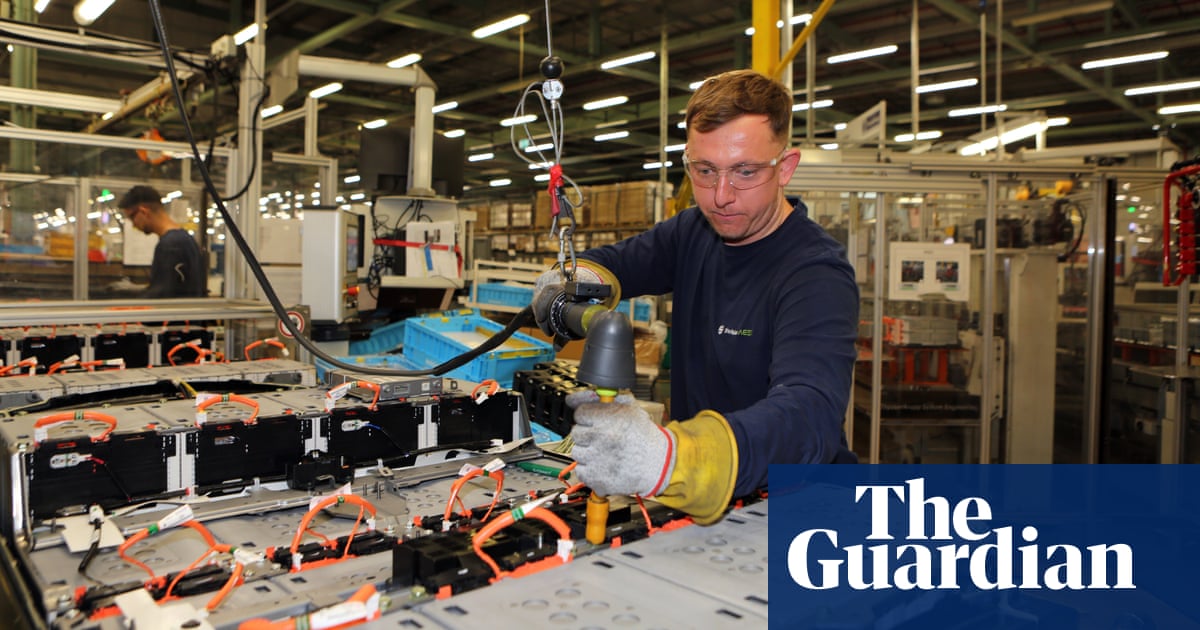Britain’s largest manufacturers are expecting orders and output to increase dramatically in the second half of the year, even as a chronic shortage of skilled workers is threatening the ability of some companies to do business.
Manufacturing is returning to normal business conditions after wild swings in demand during the pandemic, disruptions in prices after the Russian invasion of Ukraine, and the effect on supply chains of blockages and conflict around the Suez canal, according to a survey of 320 companies by the trade body Make UK.
The share of manufacturing businesses experiencing an improvement in their order books has doubled in the past three months, Make UK said. Growth has been powered by exports, with strong demand from the US making up for sluggish conditions at home. But cooling prices and potential cuts to interest rates have boosted hopes of much stronger growth in the second half of the year, and business confidence has risen to equal its highest level in the past decade.
Make UK is expecting manufacturing to grow by 1.2% in 2024, beating GDP growth of 0.9% for the year. But optimism in the sector is dampened by a shortage of skilled workers that must be at the heart of the next government’s plans for industry, companies said.
The measures proposed by Labour and the Tories in their election manifestos were only part-solutions to a decade of mismanagement of the apprenticeship system, Make UK said.
Rishi Sunak has committed to closing down poorly performing university courses to fund 100,000 apprenticeship places over the next five years. Meanwhile, Labour said it would allow employers to spend up to 50% of their apprenticeship levy on accredited non-apprenticeship training under a new growth and skills levy, giving them greater freedom in the way they spend their funds.
James Brougham, a senior economist at Make UK, said: “At long last, manufacturers can see concrete signs of growth and a much better economic outlook ahead … The next government must capitalise on this scenario by delivering a modern, long-term industrial strategy which goes beyond the 2030s and has cross-government support.
after newsletter promotion
“This must be supported by a revolution in skills, a shortage of which is the biggest factor affecting not just companies’ growth prospects but, in many cases, their ability to maintain daily operations and fulfil contracts.”







